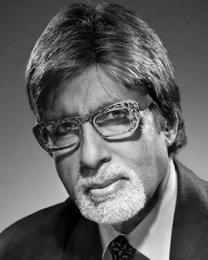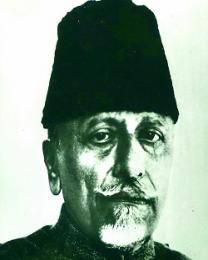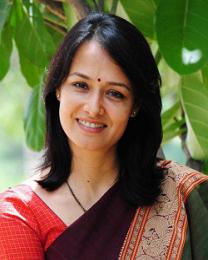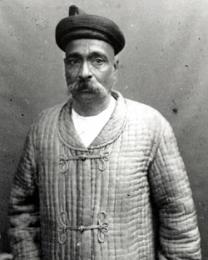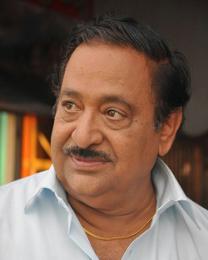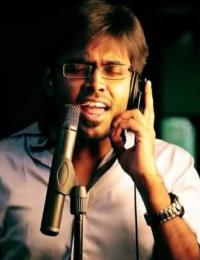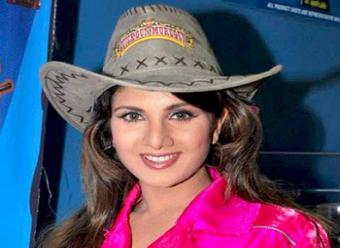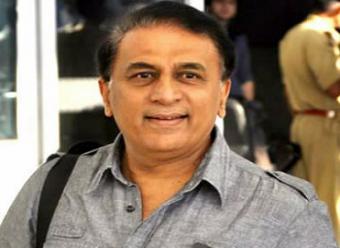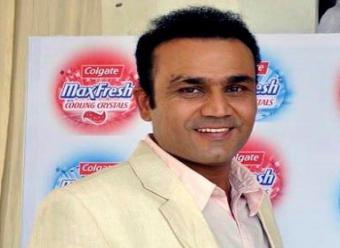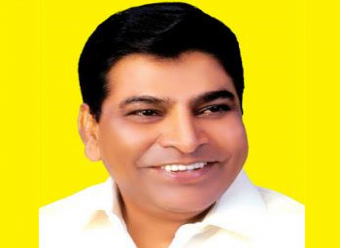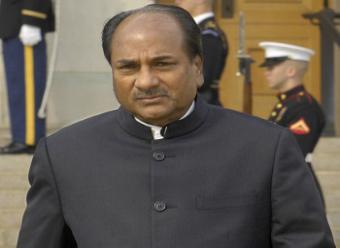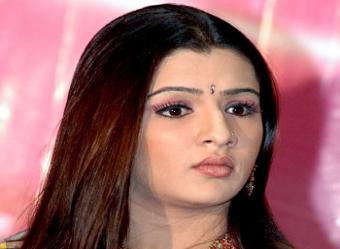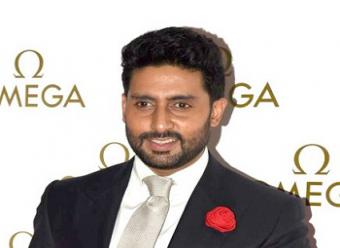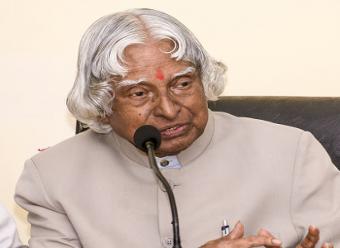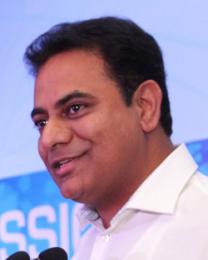Birth Name : Sachin Ramesh Tendulkar
Date of birth : 24/04/1973
Place of birth : Bombay, Maharashtra, India
Category : Cricket
Awards
National honors
Padma Vibhushan, India's second highest civilian award, 2008
Maharashtra Bhushan Award, Maharashtra State's highest Civilian Award in 2001
Padma Shri, India's fourth highest civilian award, 1999
Rajiv Gandhi Khel Ratna, India's highest honour given for achievement in sports, 1997–98
Arjuna Award, by the Government of India in recognition of his outstanding achievement in sports, 1994
Other honors
Wisden Leading Cricketer in the World: 2010
ICC Award-Sir Garfield Sobers trophy for cricketer of the year 2010
LG People's Choice Award: 2010
ICC World Test XI: 2009, 2010, 2011
ICC World ODI XI: 2004, 2007, 2010
Player of the tournament in 2003 Cricket World Cup
Rajiv Gandhi Awards – Sports: 2005.
Wisden Cricketer of the Year: 1997
In October 2010, he was awarded for Outstanding Achievement in Sport and the Peoples Choice Award at The Asian Awards in London
On 28 January 2011, he won the 'Castrol Indian Cricketer of the Year' award
'BCCI Cricketer of the Year' award on 31 May 2011
On 3 September 2010, he was made a Honorary Group captain by the Indian Air Force
On 11 June 2012, he was given Wisden India Outstanding Achievement award
Honorary Member of the Order of Australia, given by the Australian government on 6 November 2012
Early career
His brother 'Ajit' introduced him to cricket in 1984. He introduced the young 'Sachin' to 'Ramakant Achrekar', a famous cricket coach and a club cricketer of repute, at Shivaji Park, Dadar. He was also coached under the guidance of 'Achrekar' at Shivaji Park in the mornings and evenings. Tendulkar would practice for hours on end in the nets. If he became exhausted, Achrekar would put a one-rupee coin on the top of the stumps, and the bowler who dismissed Tendulkar would get the coin. In 1987, at the age of 14, he attended the MRF Pace Foundation in Madras (now Chennai) to train as a fast bowler, but Australian fast bowler Dennis Lillee, who took a world record 355 Test wickets, was unimpressed, suggesting that Tendulkar focus on his batting instead. A couple of months later, former Indian batsman 'Sunil Gavaskar' gave him a pair of his own ultra light pads. Tendulkar scored 326 (not out) in this innings and scored over a thousand runs in the tournament. This was a record partnership in any form of cricket until 2006, when it was broken by two under-13 batsmen in a match held at Hyderabad in India.
On 14 November 1987, Tendulkar was selected to represent Mumbai in the 'Ranji Trophy', India's premier domestic first-class cricket tournament, for the 1987–88 season. However, he was not selected for the final eleven in any of the matches. A year later, on 11 December 1988, aged just 15 years and 232 days, Tendulkar made his debut for Mumbai against Gujarat at home and scored 100 not out in that match, making him the youngest Indian to score a century on first-class debut. He was handpicked to play for the team by the then Mumbai captain Dilip Vengsarkar after watching him easily negotiating India's best fast bowler at the time, Kapil Dev, in the Wankhede Stadium nets, where the Indian team had come to play against the touring New Zealand team. He followed this by scoring a century in his first Deodhar and Duleep Trophies, which are also Indian domestic tournaments.
His first double century was for Mumbai while playing against the visiting Australian team at the Brabourne Stadium in 1998. He is the only player to score a century in all three of his domestic first-class debuts.
International career
Raj Singh Dungarpur is credited for the selection of Tendulkar for the Indian tour of Pakistan in late 1989, and that also after just one first class season. The Indian selection committee had shown interest in selecting Tendulkar for the tour of the West Indies held earlier that year, but eventually did not select him, as they did not want him to be exposed to the dominant fast bowlers of the West Indies so early in his career. Tendulkar made his Test debut against Pakistan in Karachi in November 1989 aged just 16 years and 223 days. Tendulkar further enhanced his development during the 1991–1992 tour of Australia held before the 1992 Cricket World Cup, that included an unbeaten 148 in Sydney and 114 on a fast, bouncing pitch at Perth against a world-class pace attack comprising Merv Hughes, Bruce Reid and Craig McDermott. Hughes commented to Allan Border at the time that 'This little prick's going to get more runs than you, AB'.
Tendulkar's rise continued when he was the leading run scorer at the 1996 World Cup, scoring two centuries. He was the only Indian batsman to perform in the infamous semi-final against Sri Lanka. Tendulkar fell amid a batting collapse and the match referee, Clive Lloyd awarded Sri Lanka the match after the crowd began rioting and throwing litter onto the field. Tendulkar single-handedly won the ICC 1998 quarterfinal at Dhaka to pave way for India's entry into the semifinals, when he took four Australian wickets after scoring 141 runs in just 128 balls. The worst was yet to come as Professor Ramesh Tendulkar, Tendulkar's father, died in the middle of the 1999 Cricket World Cup. Tendulkar flew back to India to attend the final rituals of his father, missing the match against Zimbabwe. However, he returned with a bang to the World cup scoring a century (unbeaten 140 off 101 balls) in his very next match against Kenya in Bristol. He dedicated this century to his father.
Captaincy
Sachin Tendulkar's two tenures as captain of the Indian cricket team were not very successful. When Tendulkar took over as captain in 1996, it was with huge hopes and expectations. However, by 1997 the team was performing poorly. Azharuddin was credited with saying "Nahin jeetega! Chote ki naseeb main jeet nahin hai!". Tendulkar, succeeding Azharuddin as captain for his second term, then led India on a tour of Australia, where the visitors were comprehensively beaten 3–0 by the newly crowned world champions. Tendulkar, however, won the player of the tournament award as well as player of the match in one of the games. After another Test series defeat, this time by a 0–2 margin at home against South Africa, Tendulkar resigned, and Sourav Ganguly took over as captain in 2000.
Sachin remains an integral part of the Indian team's strategic processes. He is often seen in discussion with the captain, at times actively involved in building strategies. Former captain Rahul Dravid publicly acknowledged that Tendulkar had been suggesting moves such as the promotion of Irfan Pathan up the batting order which, although only temporary, had an immediate effect on the team's fortunes. In 2007, Tendulkar was appointed vice-captain to captain 'Rahul Dravid'. During the Indian team's 2007 tour of England, Dravid's desire to resign from the captaincy became known. The BCCI President 'Sharad Pawar' personally offered the captaincy to 'Tendulkar'. However, Tendulkar asked 'Pawar' not to appoint him captain, instead recommending 'Mahendra Singh Dhoni' to take over the reins. Pawar later revealed this conversation, crediting Tendulkar for first forwarding the name of 'Dhoni', who since achieved much success as captain.
Twitter Feeds
-
 Wishing one of India’s safest hands, @mohammadkaif, a very happy birthday. Have a good year ahead. https://t.co/t7nPs8tUQU
Wishing one of India’s safest hands, @mohammadkaif, a very happy birthday. Have a good year ahead. https://t.co/t7nPs8tUQU
-
 Well done, boys! Good to see you getting off the mark in great fashion. Congratulations on your 5-0 win against Sou… https://t.co/VtnVHMZaqu
Well done, boys! Good to see you getting off the mark in great fashion. Congratulations on your 5-0 win against Sou… https://t.co/VtnVHMZaqu -
 Best wishes to Team India for the #HWC2018 commencing in Bhubaneswar, Odisha today. I believe in you, the nation be… https://t.co/CnIsHuRVBz
Best wishes to Team India for the #HWC2018 commencing in Bhubaneswar, Odisha today. I believe in you, the nation be… https://t.co/CnIsHuRVBz -
 A delicious meal prepared by two fabulous chefs, Chef @Paulkinny and Chef Ting Yen from Yukka, @stregismumbai. Coul… https://t.co/aLuZauJkQa
A delicious meal prepared by two fabulous chefs, Chef @Paulkinny and Chef Ting Yen from Yukka, @stregismumbai. Coul… https://t.co/aLuZauJkQa -
 Fond memories of your birthday lunch last year, @ImRaina. Wishing you a very happy birthday and a blissful year ahe… https://t.co/FW6rM19uRs
Fond memories of your birthday lunch last year, @ImRaina. Wishing you a very happy birthday and a blissful year ahe… https://t.co/FW6rM19uRs -
 Life sirf lambi nahi, badi bhi honi chahiye. This stands true for all the brave people who protected and served dur… https://t.co/eFEhRifaI1
Life sirf lambi nahi, badi bhi honi chahiye. This stands true for all the brave people who protected and served dur… https://t.co/eFEhRifaI1 -
 World’s best woman boxer and now it’s official. @MangteC, you have been fabulous. Congratulations on winning your r… https://t.co/Kg8BIqK5SW
World’s best woman boxer and now it’s official. @MangteC, you have been fabulous. Congratulations on winning your r… https://t.co/Kg8BIqK5SW -
 “Do good, see good, be good. This is the way to God!” His teachings were always simple, yet so impactful. Rememberi… https://t.co/62h8rjKIHp
“Do good, see good, be good. This is the way to God!” His teachings were always simple, yet so impactful. Rememberi… https://t.co/62h8rjKIHp -
 A very happy birthday to @Gary_Kirsten! Wishing you loads of happiness on this special day. Have a good one. https://t.co/pobtvhhyDb
A very happy birthday to @Gary_Kirsten! Wishing you loads of happiness on this special day. Have a good one. https://t.co/pobtvhhyDb
-
 May the holy teachings of Guru Nanak ji guide us on the path of truth and enlighten our heart and mind. Wishing eve… https://t.co/MdyHKQI5CG
May the holy teachings of Guru Nanak ji guide us on the path of truth and enlighten our heart and mind. Wishing eve… https://t.co/MdyHKQI5CG -
 It was a fun and nostalgic evening with my dear friend @vvslaxman281. Your book #281andBeyond is going to be a ‘VVS… https://t.co/DIDpWvsoZt
It was a fun and nostalgic evening with my dear friend @vvslaxman281. Your book #281andBeyond is going to be a ‘VVS… https://t.co/DIDpWvsoZt -
 Thank you, @iamneerajkanwar! It will be an exciting journey with @apollotyres. Let’s #GoTheDistance. https://t.co/AUl0eu2x4O
Thank you, @iamneerajkanwar! It will be an exciting journey with @apollotyres. Let’s #GoTheDistance. https://t.co/AUl0eu2x4O -
 Bumping into you made my day, @Shankar_Live. Always nice to catch up. https://t.co/IhYiwPb88C
Bumping into you made my day, @Shankar_Live. Always nice to catch up. https://t.co/IhYiwPb88C -
 We as parents and guardians should always teach our kids to lead a healthy and fit life. Today, on… https://t.co/3GcOjj0NDL
We as parents and guardians should always teach our kids to lead a healthy and fit life. Today, on… https://t.co/3GcOjj0NDL -
 You’ve been an inspiration to everyone in India, your grit and passion is an example for every athlete or aspiring… https://t.co/R7bEIdHGyP
You’ve been an inspiration to everyone in India, your grit and passion is an example for every athlete or aspiring… https://t.co/R7bEIdHGyP -
 Was a pleasure to meet Priyanka Mohite, a bright young woman who climbed Mt. Everest at 21 & accomplished the feat… https://t.co/MfZw4lwoNp
Was a pleasure to meet Priyanka Mohite, a bright young woman who climbed Mt. Everest at 21 & accomplished the feat… https://t.co/MfZw4lwoNp -
 An amazing display of cricket by India yesterday to win the game against Australia. @mandhana_smriti, superb perfor… https://t.co/bQtQo9GM3U
An amazing display of cricket by India yesterday to win the game against Australia. @mandhana_smriti, superb perfor… https://t.co/bQtQo9GM3U -
 Excited to see you guys live and answer all your questions on #100MB in a couple minutes!
Excited to see you guys live and answer all your questions on #100MB in a couple minutes! -
 This day, every year, brings back so many memories of the day I 1st represented India. It was an honour to play for… https://t.co/TXSUY0HnQb
This day, every year, brings back so many memories of the day I 1st represented India. It was an honour to play for… https://t.co/TXSUY0HnQb -
 Going Live on my app #100MB tomorrow after the 1st session of play at our #TMGAPune camp. Let’s do a quick huddle b… https://t.co/9oqGq4YGp1
Going Live on my app #100MB tomorrow after the 1st session of play at our #TMGAPune camp. Let’s do a quick huddle b… https://t.co/9oqGq4YGp1



